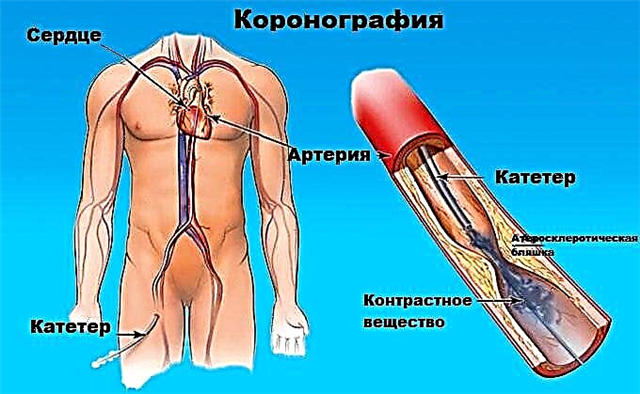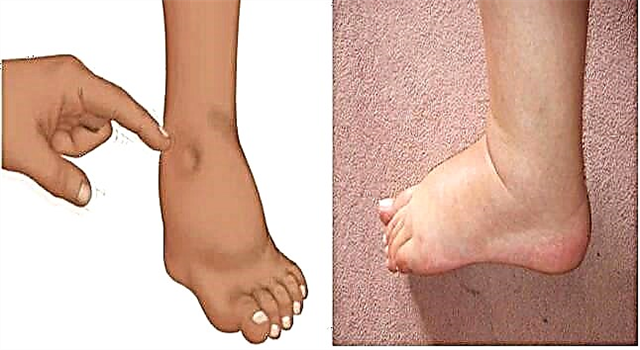Suppression of immune reactivity during pregnancy is a physiological condition that provides optimal conditions for the fetus and prevents its rejection, that is, spontaneous abortion. However, immunosuppression does not always have a positive effect on the body of the expectant mother, because resistance to infections decreases. A woman becomes more sensitive to all negative factors of exogenous and endogenous origin. A runny nose during pregnancy and a cough should alert a woman and become a reason for consulting a doctor.
 There are many reasons for the appearance of rhinitis and cough:
There are many reasons for the appearance of rhinitis and cough:
- infections (rhinos, adenoviruses, streptococci, pneumococci);
- hypothermia. A woman can get her feet wet or freeze in the cold, which will lead to a decrease in immunity and the development of a disease. If you drink a cold drink or overeat ice cream, the risk of pharyngitis increases, which may be accompanied by a runny nose and coughing;
- communication with sick people, especially during periods of epidemics or in stuffy rooms;
- stress and constant nervous tension;
- allergic reactions. An immune response in the form of allergies can develop after contact with plant pollen, poplar fluff, wool, dust mites, household chemicals, or inhalation of perfume;
- concomitant diseases of a systemic nature, for example, diabetes or hypertension, which reduce immunity and weaken the body;
- adverse environmental conditions. This applies to living in areas with air polluted by chemical or dust particles. In addition, dry and dusty air in the home also increases the risk of respiratory diseases.
Clinical manifestations
You can suspect a disease in a pregnant woman based on the following symptoms:
- cough (dry, paroxysmal, wet);
- soreness, discomfort, perspiration in the oropharynx;
- nasal congestion;
- nasal discharge (watery or thick, clear or yellowish);
- fever (not always) Its severity depends on the provoking factor and the level of immunity;
- headache;
- fast fatigue;
- aches in muscles, joints;
- insomnia;
- sneezing.
Each symptom can lead to undesirable consequences for the fetus, so treatment should be timely and comprehensive.
Fighting fever
Hyperthermia with a viral disease can reach 39 degrees if it is caused by the flu. It is not worth allowing such a fever, therefore, the fight against it should be started when registering indicators at the level of 37.5 degrees. With regard to bacterial hyperthermia, antipyretics are not always effective enough to lower the temperature. In this case, the question of the appointment of antibacterial medicines is resolved.
High hyperthermia leads to embryo hypoxia.
The antipyretic effect is possessed by drugs based on paracetamol. Only they are allowed for use by pregnant women. Among these drugs, Efferalgan, Panadol or Paracetamol should be noted. They not only reduce the severity of hyperthermia, but also eliminate headache, body aches and chills.
From physical methods, a warm shower is used. Do not forget about drinking plenty of fluids, because a sufficient intake of fluid into the body:
- reduces the severity of fever;
- replenishes body fluid losses with sweat and breathing;
- accelerates the elimination of toxic substances, thereby reducing intoxication;
- reduces the viscosity of phlegm, which improves its excretion from the respiratory tract and relieves coughing.
A woman is allowed teas, fruit drinks, fruit drinks, still mineral water, warm milk, to which you can add a gram of soda or a piece of butter.
Calculation of urine output and fluid intake per day is especially important in the third trimester. During this period, swelling increases, it becomes harder for a woman to breathe and do housework. A large intake of fluid into the body can aggravate the condition, increase swelling, increase blood pressure and impair breathing.
Swelling in the lower extremities is caused by the obstructed outflow of lymph and blood through the vessels due to their compression by the enlarged uterus. In addition, hormonal changes predispose to fluid retention in the body.
Help with an infectious disease
It is necessary to treat an infectious disease with the help of special medicines, the action of which is aimed at eliminating pathogenic microorganisms:
- antiviral drugs are prescribed when the viral genesis of the disease is established. For this, homeopathic medicines or interferons with vitamins can be used, for example, Otsilokoktsinum, Nazoferon, Engystol or Viferon. Their action is aimed at strengthening immune defenses, reducing inflammation and fighting viruses. The duration of the treatment course is usually 5-7 days, but its extension is possible. When using homeopathic remedies, you must strictly follow the regimen (before or after meals);
- antibacterial drugs are prescribed taking into account the type of bacteria. For this, swabs from the nasal cavity are analyzed, as well as a culture study of sputum or nasal discharge. Doses and choice of medication are carried out exclusively by the doctor. Many antibiotics have a detrimental effect on the embryo, so you should strictly follow the doctor's recommendations. Of the approved drugs, it is worth highlighting Flemoklav or Ceftriaxone.

Cold treatment
If a common cold has become the cause of a runny nose, it is enough to control the temperature and bury the nose. For the treatment of a cold, the following are prescribed:
- vasoconstrictor agents. Their action is to restore nasal breathing by reducing the swelling of the mucous membrane and the production of mucous discharge. Pregnant women are allowed to use baby nasal sprays, such as Vibrocil or Nasik. If there is no allergy to essential oils, the use of Pinosol is allowed. The optimal drug for pregnant women is Delufen. It is prescribed for infectious, allergic or vasomotor rhinitis, including the chronic form. The drug belongs to the group of homeopathic remedies, has anti-inflammatory, antiallergic, protective, antimicrobial effects, and also stimulates regenerative processes. It is not addictive, normalizes the microflora of the nasopharynx and quickly relieves the symptoms of rhinitis;
Prolonged use of vasoconstrictor agents leads to dryness of the mucous membrane and addiction, due to which the strength of the therapeutic effect is sharply reduced.
- rinsing the nasal passages with saline solutions. The procedure allows you to cleanse the mucous membrane of dust, crusts, moisturize it and normalize the functioning of the cilia. To do this, you can use pharmaceutical preparations, for example, saline, Salin, Dolphin, or prepare a solution yourself (in warm water 230 ml, it is enough to dissolve 5 g of salt);
- homeopathic medicine Sinupret is prescribed to reduce the severity of edema, inflammation, hypersecretion, as a result of which nasal breathing is restored.
From traditional medicine it is allowed to use:
- aloe juice for instilling the nasal passages. It is also effective for sinusitis. Used two drops in each nostril three times a day;
- carrot juice for nasal instillation (four drops in each nasal passage three times a day);
- inhalations from herbal decoctions. For this, chamomile, yarrow, sage are used. To provide a therapeutic effect on the nasopharyngeal mucosa, inhalation must be carried out through the nose. Inhalation can be done with essential oils (eucalyptus, tea tree). It is enough to add 4 drops to warm water with a volume of half a liter.

- massage of special points, which activates local blood flow, reduces tissue swelling and facilitates nasal breathing. The points are located near the wings of the nose (on both sides), in the eyebrow zone and above the upper lip;
- warming up the paranasal zone with heated salt in a bag or a boiled egg wrapped in a scarf. Leaning against the skin, a woman should feel a slight warmth, avoiding burning.
Therapeutic tactics for coughing
Treating a runny nose and cough during pregnancy is especially effective with inhalation. Various groups of drugs can be used to relieve sputum discharge and reduce coughing.
| Group of drugs | Medicine | Doses | Note |
|---|---|---|---|
| Bronchodilators (dilate the bronchi, improve the drainage function of the respiratory organs) | Berodual | 2 ml are diluted with saline (1: 1). Repeat up to three times a day | Banned in the 1.3 trimester, used with caution in the second. |
| Mucolytics (liquefy phlegm in the bronchi and mucus in the nasal cavities, accelerate its excretion) | Ambrobene | Enough 2 ml of medication for one procedure, after diluting it with saline solution (1: 1) | In the first - it is prohibited, then - with caution. |
| Still mineral water (moisturizes the mucous membrane) | Borjomi, Essentuki | Not diluted, 4 ml is sufficient for inhalation | Allowed for any period |
| Homeopathic remedies | Sinupret. Tonsilogon N | Diluted with saline solution 1: 1, inhalation is repeated three times a day | Sinupret - be careful, Tonsilogon N - allowed |
| Phytopreparations | Cough medicine | The contents of one package must be completely dissolved in 15 ml of saline. | Allowed in the absence of grass allergy |
| Phytopreparations, mucolytic, expectorants | Mukaltin, Pertussin | Mukaltin tablet is dissolved in 80 ml of saline. Pertussin is diluted 1: 1. For inhalation, 3 ml is enough, the procedure is repeated three times a day. | Allowed |
| Hormonal agents | Pulmicort (with the threat of laryngospasm due to severe edema of the vocal cords and larynx) | Does not require dilution. Doses are calculated by a doctor | Allowed |
Cough increases intra-abdominal pressure, which is fraught with an increase in uterine tone and premature birth.
 To cure a cough, you need to follow the recommendations:
To cure a cough, you need to follow the recommendations:
- plentiful drink is necessary;
- by agreement with the doctor, Gedelix, Mukaltin and Herbion (plantain) may be prescribed for oral administration;
- it is possible to reduce a sore throat, which can provoke a cough, with the help of gargling with Miramistin or Chlorhexidine. Lollipops Faringosept, Lizobakt and spray Tantum Verde or Strepsils Plus are allowed.
Among the popular recipes, it is worth highlighting:
- soda-salt rinse solution;
- cough radish juice;
- inhalation over boiled potatoes with the addition of soda;
- honey for resorption.
Prevention Tips
You can overcome a cough and prevent its reappearance with the help of simple rules:
- you should not overcool, drink cold drinks and abuse ice cream;
- you need to avoid long-term contact with people with the flu;
- if a family member is sick, he needs to wear a mask;
- when sensations of body aches or nasal congestion appear, treatment should be started immediately (drinking plenty of fluids, rinsing the nose, taking vitamins);
- it is necessary to maintain sufficient humidity in the room and regularly ventilate the room;
- warming procedures (compresses, mustard plasters, foot baths) are prohibited;
- inhalations are not carried out with a fever above 37.7 degrees;
- if you have a predisposition to allergies, contact with allergens should be avoided;
- it is recommended to devote enough time to rest and sleep;
- you need a healthy diet;
- stress must be avoided.
It is especially pleasant and useful for a pregnant woman to relax in nature or on the seashore. This will allow not only to improve the health of the body, but also to create the basis for strong immunity in the unborn child.




